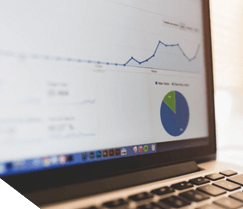
The open data revolution
How access to both health and financial data could improve
treatment and self-management in mental health
Speaking recently at the third annual Mental Health Crisis Concordat, Secretary for Health Jeremy Hunt announced plans for patients to be able to download their medical records starting from September 2017. The ability to download medical records is something that currently exists in the US and as a proposal has been floated here for a number of years. Now with a date for access finally in the diary, we can look ahead to September 2017 and consider the potential benefits of putting medical records in the hands of patients.
What’s in your medical record?
Your medical record should include anything to do with your health care, including details about any treatment you’re receiving and any medication that’s been prescribed, as well as consultation notes.
Being able to keep track of what treatments you’ve had, appointments you’ve attended and any medication you may have been prescribed means that patients can keep track of how their health conditions are being managed and make informed choices with the knowledge of all the treatments they have received to date. It could also help people discuss their condition and share decisions about medical treatments with others, such as loved ones or carers.
Downloading your medical record
Patients are currently able to request access to an online copy of their medical record from their GP, but the change to being able to easily download it has at least two clear benefits.
Firstly rather than having to access the data through an NHS source, people can download this information and keep it with them, without having to worry about logging in to check it.
But the greatest potential for being able to download your medical record for people experiencing mental health problems comes from what you can do with it. Once you can access and download this data, technology solutions can be designed to link it to other data sources and gain a more holistic understanding of mental health conditions, triggers, the effectiveness of treatments and coping strategies.
Linking financial and health data
Looking at your medical record gives an insight into your healthcare across time, but doesn’t give a full picture of how it fits into other aspects of your life. People with mental health problems are more likely to be in problem debt, and often financial difficulties can hinder the recovery from mental health problems. Combining information about your medical and financial records could allow people who may be experiencing both to sync these information sources up and establish both the relationship between the two, and how best to tackle it.
This announcement comes not long after the Competition and Markets Authority’s call for the introduction of Open banking which would enable customers to share their current account details with trusted third parties. The advance of Open Banking could herald the development of digital tools and apps that allow people to share information about their medical and financial records, within a single interface getting clear insight into the links between the two and allowing for informed choices in addressing these problems.
For example people might be able to see that certain medication made it more difficult to manage their finances, by making it harder to remember to pay bills on time. Realising this is a problem may influence treatment decisions, or help people to put in place coping strategies like using direct debits or seeking support from a friend or family member, to avoid the problem. For others, impulsive spending may be a symptom of their mental health problem, and being able to clearly see that talking therapy was helping to address their spending could help many feel confident that they could work to address these issues should they arise at a later point in time.
Downloading safely and securely
This announcement follows not long after the scrapping of the controversial care data scheme that would have held all patient’s GP files on a single database after concerns about confidentiality and potential security reaches. Questions of how patients can download this data securely must be thoroughly addressed. But once there is a robust and safe system in place, then there are many benefits to giving patients access to their own data. Given the considerable overlap between financial difficulties and mental health problems, being able to join the dots with data could provide invaluable insight to help people manage their money and support any future decisions about their care.
